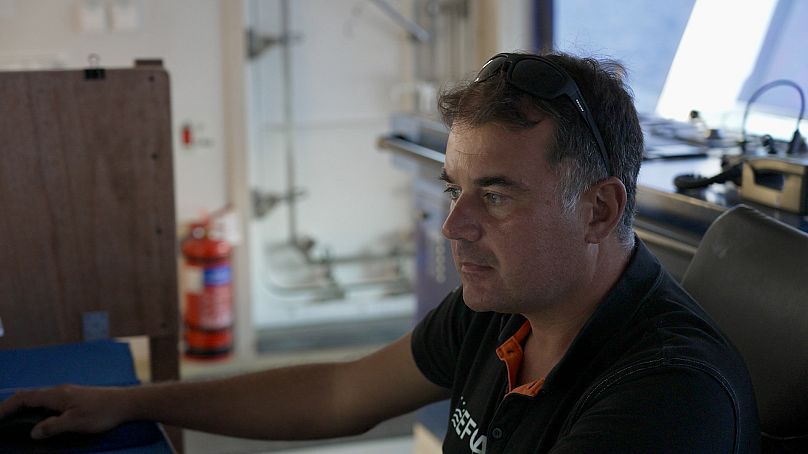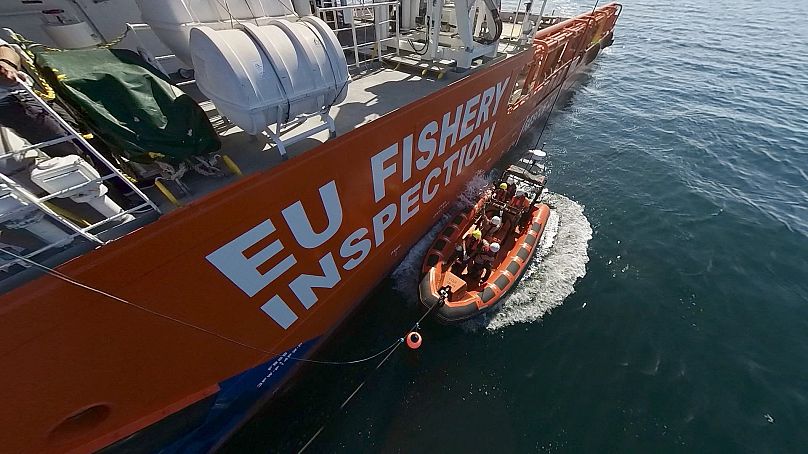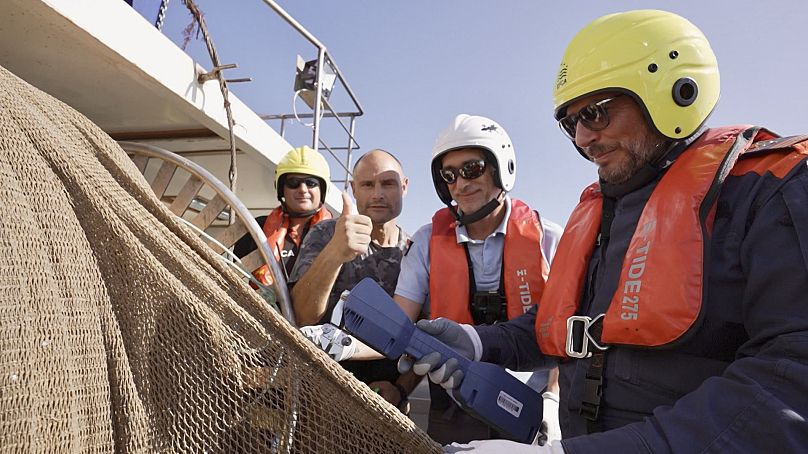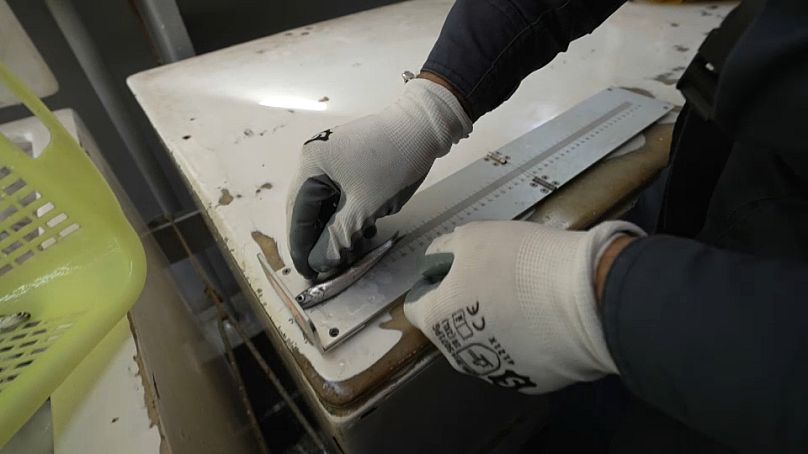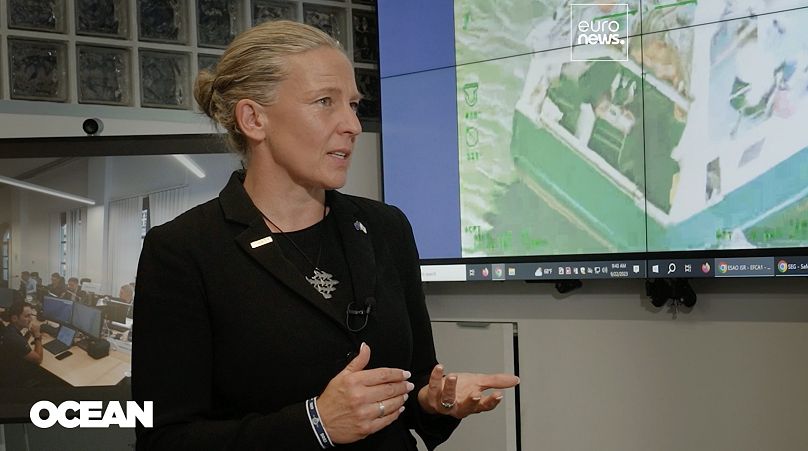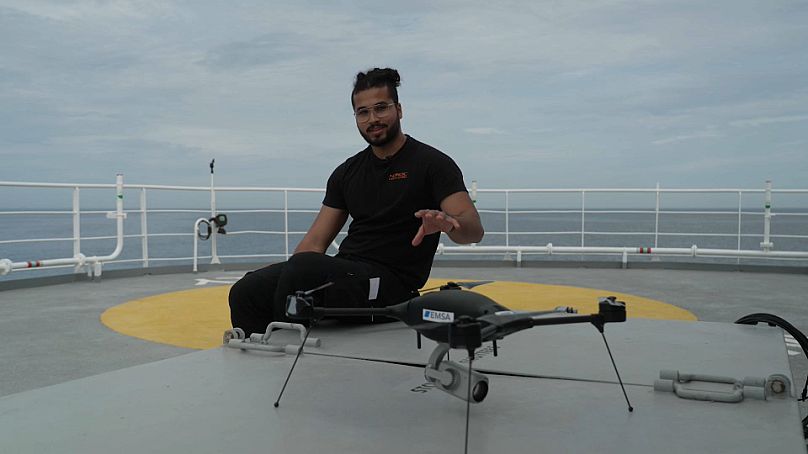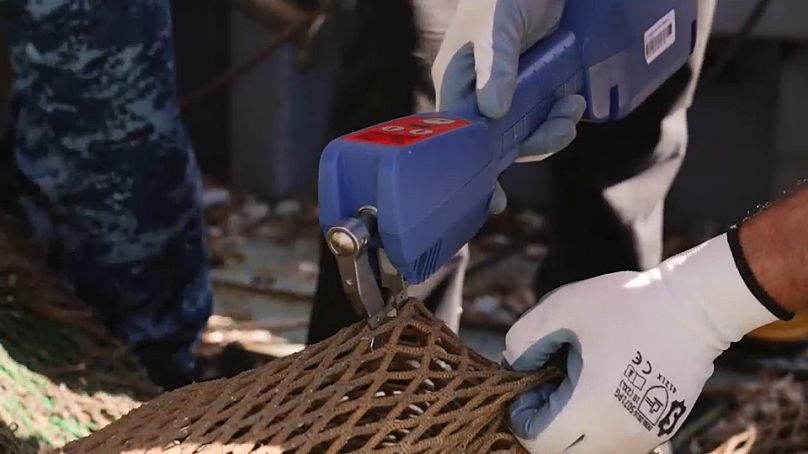In this episode of Ocean, we step on board the Ocean Sentinel patrol vessel to see first-hand how EU member states and agencies are working together to enforce fishing regulations in the Adriatic Sea.
The Mediterranean Sea is one of the most overfished places on Earth. Its future depends on all fishers playing by the rules and keeping their catches sustainable. But how do authorities ensure this in a vast sea crisscrossed by national borders?
The Ocean Sentinel is a vessel run by the European Fisheries Control Agency (EFCA). It patrols the international waters of the Adriatic Sea between Italy and Croatia, and Ocean joined the team onboard to see how it ensures the rules of the sea are being respected.
Pooling resources, sharing know-how
In the wheelhouse of Ocean Sentinel, Andrea Patalano, the EFCA's coordinator for control operations, prepares for his morning briefing with the inspection team.
"Why do we have a European Union patrol vessel? It's to let member countries put their own inspectors on board," Andrea told Ocean. "This way, we can share insights, best practices, and aim for a unified approach in inspections and control activities."
Alongside Andrea and another Italian inspector, the team also includes a drone pilot and a pair of fishing inspectors from Croatia.
"It's a great mix. We swap experiences and collaborate. That's crucial because the Adriatic is a sea that is shared," said Domagoj Bojko, the fishery inspector at Croatia’s Ministry of Agriculture.
Ocean joined EFCA on a mission in the Mediterranean Sea - in international waters, but not far from a fisheries-restricted area. Fishing is permitted there as long as it follows the European and national rulebooks.
In the morning, two fishing boats working side by side are the first to be inspected. The team radios the fishermen to give them a heads-up. All clear, no objections.
Moments after, a speedboat zooms off from the Ocean Sentinel, carrying the inspection team to the fishing boats at sea.
These fishermen, many from the same family, haul in anchovies and sardines to market them across Germany, Italy, and Spain. For Captain Dario Lacchini, inspections are no big deal — in fact, he is all for them.
"We're a family operation, and our reputation and product matter to us," Dario revealed. "We're young guys looking to the future. With regular inspections like this, everyone's more likely to follow the rules, which should lead to even better catches down the line."
A tricky part of the inspector's job is stepping from one moving boat to another out in the open sea, and that's even more challenging in bad weather. But today's inspection seems to go smoothly, starting with the paperwork. Everything is in check, from the fishing license to the catch log.
"We're not here to crack down hard on people. It's more about ongoing prevention," explained Nicola Bavila, a fishery inspector with the Italian Coast Guard. "Over the years, most fishermen have gotten the message. They're open to inspections and, more importantly, they're fishing by the book."
Nicola Bavila and his Croatian counterpart, Domagoj Bojko, confirm that the fishing net's mesh size is within legal bounds.
"In this case, the inspection was successful. The captain of the fishing vessel was very cooperative, and both the gear and the catch were in compliance with European regulations," Nicola added.
With all the paperwork, fishing gear, catches and monitoring systems checked out, the team heads back to the Ocean Sentinel for a debrief.
They have a busy 12 days ahead, filled with more inspections like this one. It's all part of a broader Multipurpose Maritime Operation in the Adriatic, aimed at boosting European collaboration on fishery control and other Coast Guard duties.
The big-picture goal is to learn from this experience to tighten the bonds between EU member states, pool resources, and share know-how, closing any remaining gaps in fishery control.
The whole operation is steered from EFCA's headquarters in Vigo, Spain, and it's a real team effort. Working hand-in-hand with EFCA are officers from the European Maritime Safety Agency, or EMSA, and Frontex, the European Border and Coast Guard Agency.
When it comes to fishery control, sharing data among these agencies and national authorities can fine-tune the targeting. It helps zero in on fishing boats that are more likely to be breaking the rules.
"It is impossible for any of us to inspect every vessel," said Susan Steele, the EFCA's executive director.
"So what every single member state has in common is we want to make sure, when we do inspections, that we know what the risks are of the vessels that we're inspecting. And we can do that by working together. We also want to make sure that we're doing the most cost effective methods of control as well, and the most efficient."
'Still work to be done' despite growing compliance
Back on board Ocean Sentinel, we see more examples of this inter-agency collaboration. A container packed with EMSA's oil spill gear means the team is ready for emergency cleanups should any pollution accidents happen nearby.
EFCA's aircraft is scanning the larger operational area, while Frontex boats are keeping an eye on the Croatian coast.
Each inspection is backed up by an EMSA drone. It captures a bird's-eye view of the fishing boat without tipping off the fishermen.
"Normally, the target vessel doesn't acknowledge that there is a drone in the air," revealed the drone pilot with Nordic Unmanned aircraft company, Andrew Jørgensen.
"It's very quiet, it can zoom 30 times. So if they do something — maybe if they want to throw something overboard, discard catches and stuff — hopefully I can catch that through the drone."
We're setting sights on another Italian fishing boat. This one's a bottom trawler, scooping up a mixed bag of flatfish and other bottom-living creatures. This fishing method is often criticised by environmentalists. If the strict guidelines are ignored, the negative impact can be very serious.
Based on shared data, the European team assessed the risks and flagged this boat for priority inspection.
Their concerns are validated. Not only they find the bottom trawler missing a current catch log, its vessel monitoring system also appears to have been tampered with. To make matters worse, the net fails the test: its mesh is too small and the twine too thick, which makes the gear illegal.
"Next there's a whole follow-up process carried out by the national authorities, which involves calling the fishing vessel back to port and implementing further measures by the flag state authorities. This could include administrative penalties, confiscation of the catch, and seizure of the illegal gear found on board," said EFCA Coordinator for Control Operations, Andrea Patalano.
In just the last year, EFCA coordinated close to 50,000 fishing inspections throughout the EU, uncovering more than 5,000 infractions. But the number of rule-abiding fishermen seems to be on the rise.
Better cooperation leads to better controls, helping ensure there's still fish in the sea tomorrow.
"There's a growing awareness of the need to comply with the rules for the benefit of everyone — primarily the fishermen themselves, but also all coastal communities. There's still work to be done, and that's exactly why we are out here," Andrea concluded.












